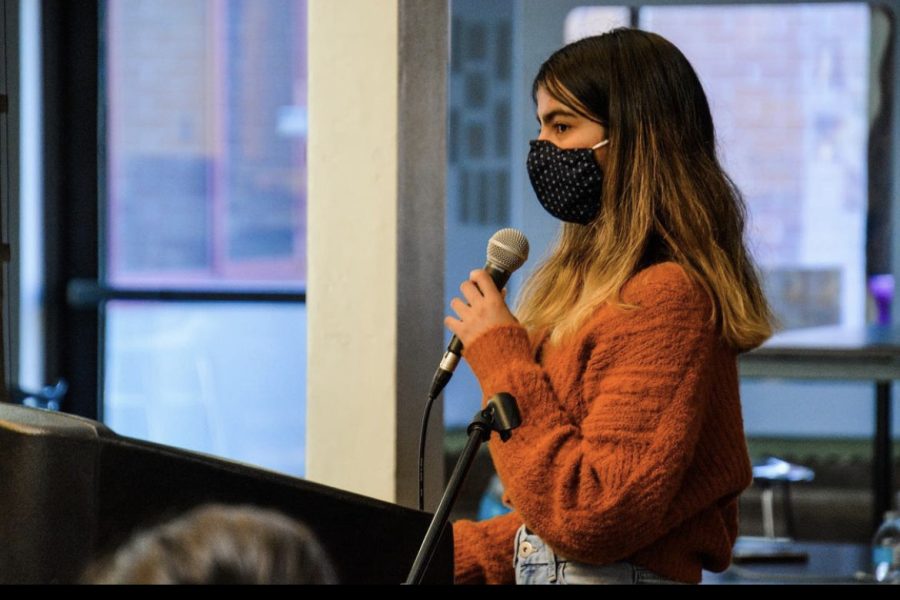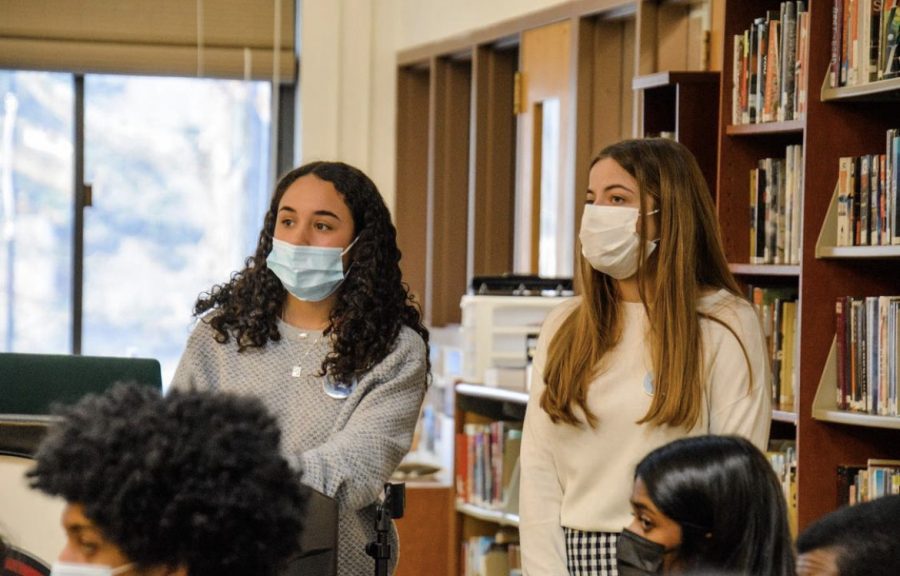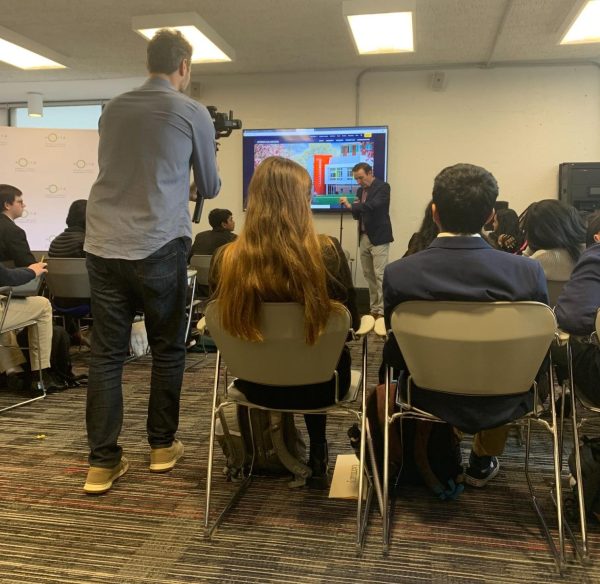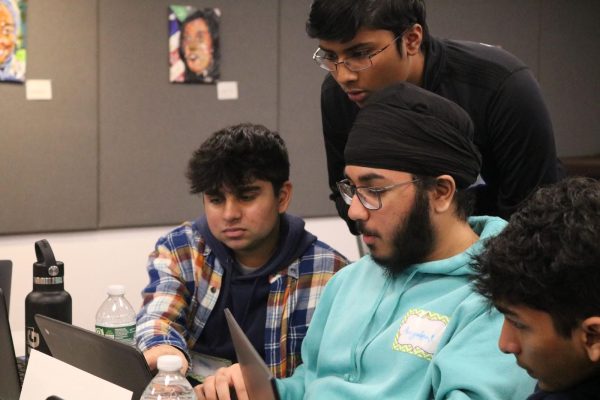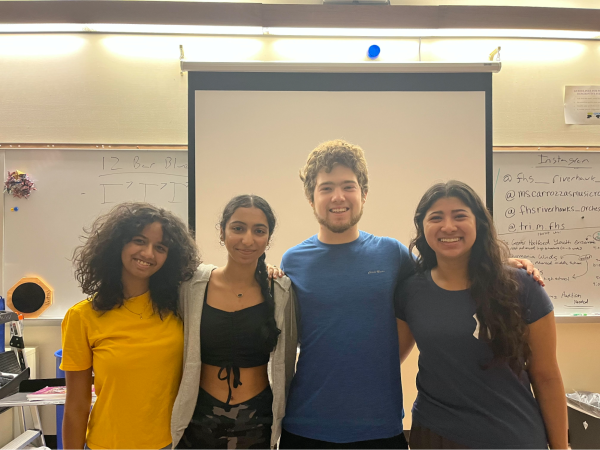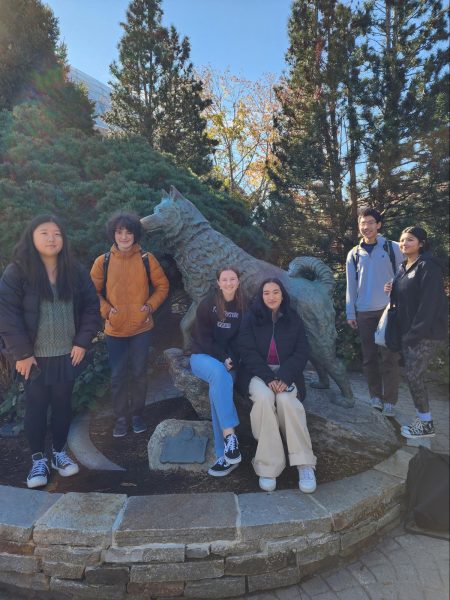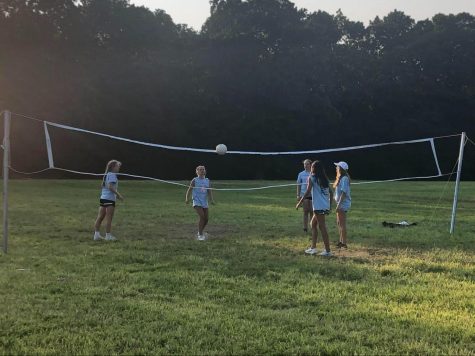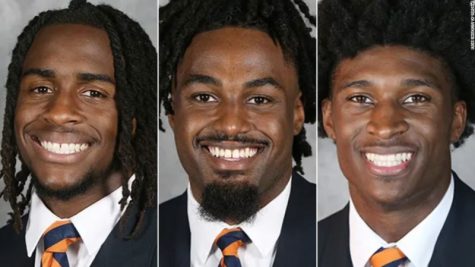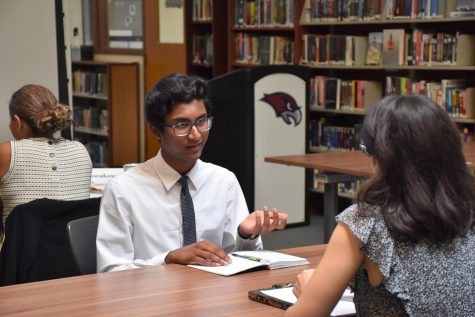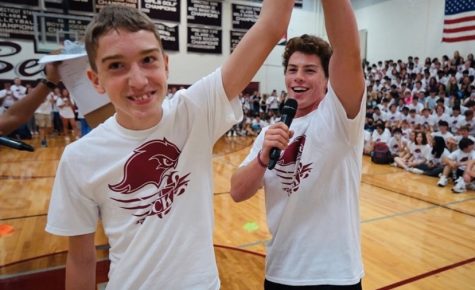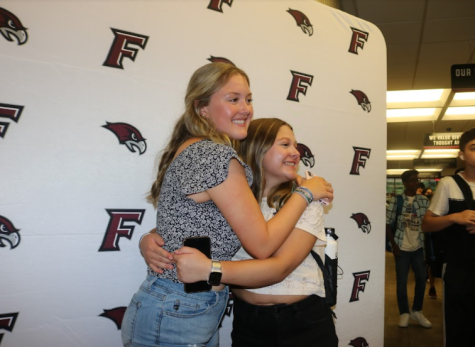Social Justice Week returns for sixth annual event
Speak Now — Junior Seerat Bath presents during Social Justice Week. The Social Justice Council hosted its sixth annual Social Justice Week during the week of February 14.
February 28, 2022
The sixth annual Social Justice Week (SJW) was once again in person after the event last year was modified to a virtual model as a result of COVID-19. Leaders and members of the various social justice clubs presented on topics in order to bring awareness to them and to create a healthy dialogue within the school community. SJW was held the week of February 14.
Social justice clubs were created in an effort to not only represent the diversity of race, religion, and ethnicity within the Farmington student body, but to also celebrate it. Presentations were conducted by groups such as, American Sign Language Club, Asian American Student Union (AASU), Black Student Union (BSU), BRAVE, BRIDGES, Gender Sexuality Alliance (GSA), Indian Student Union (ISU), Jewish Student Union (JSU),
LatinX Culture Club (LCC), Mental Health Awareness Club (MHA), Multicultural Student Union (MCSU), and Muslim Student Union (MSU).
“Being open and aware of the different perspectives is important because everyone comes from a lot of different backgrounds, cultures, religions, ethnicities, and sexualities. I think it’s important to sit back, listen, and learn from others, something that you personally may not be able to experience first hand because it doesn’t affect you,” Co-President of JSU junior Carly Passaro said.
During the planning process for SJW, members from all of the social justice clubs helped brainstorm a master document of possible topics. These topics included presentations that have traditionally been done in the past and newer, more specific issues that are less intersectional. Although they originally started with 40 presentation ideas, the group ended with a set list of 24 topics for this year.
The SJW schedule featured a variety of topics ranging from introductory level presentations on identifying and fighting hate and discrimination to increasingly complex, difficult to understand topics. Presenters shared research and personal stories throughout the presentations and overall every topic presented on was deemed important, relevant, and in need of more representation by the club members.
A theme this year’s Social Justice Council wanted to continue is the practice of intersectionality in the conversations and presentations. Overall, the social justice clubs are a tight-knit community that often share similar experiences as marginalized groups or active allies. This commonality allows for many of the SJW presentations to be intersectional such as, Eurocentric Curriculum, Colorism, Gender Across Culture, Cultural Appropriation, Intersectional Feminism, and Disparities Across the Healthcare System.
“We try to go to each other’s little events, celebrations, and fundraisers. We try to make our council intersectional and we really do try to support each other and we’re going to support everyone that is going to be speaking,” Social Justice Council member senior Katie Lister said.
Another relevant theme is the pandemic’s effect on systems of oppression and outward racism all of which are more extreme. With the tension it puts on everyone financially and/or socially it has also led to more attention to these social justice issues. The topics of the presentations have been affected to some capacity by the pandemic, so presenters have had to change how they address these issues, however, the end goal remains the same.
“If we don’t educate ourselves about the problems of the world that are happening right now, we will just keep repeating everything that has been happening,” Co-President of MSU junior Imaan Alrahani said.
These social issues within our society cannot be solved in just one week, but by taking advantage of the opportunities available to learn the student community can come together to be more inclusive, educated, and accepting to others unlike themselves.

